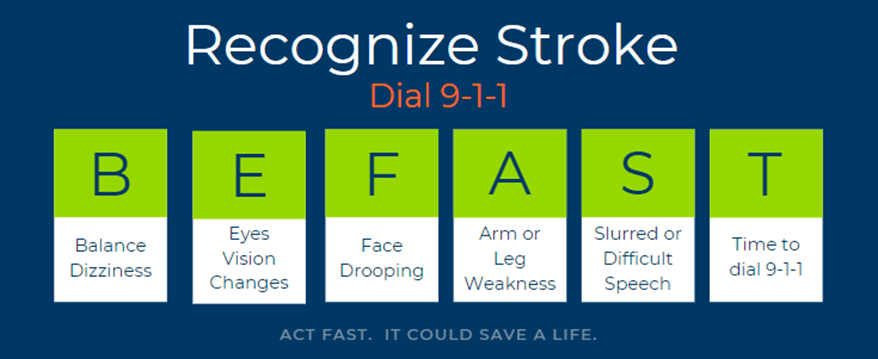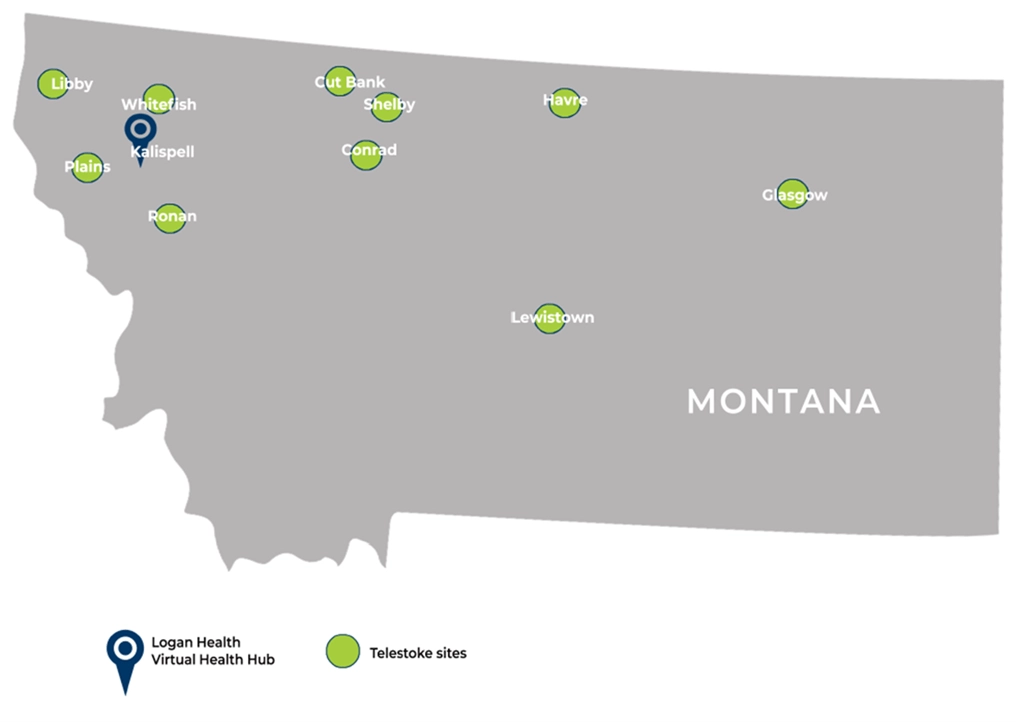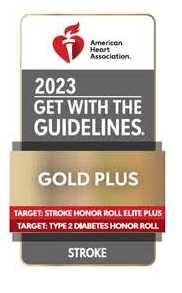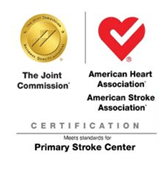BE FAST is an Easy Way to Identify a Possible Stroke

When it comes to a stroke, nothing is more important than time. A rapid response from skilled specialists can make all the difference. The Primary Stroke Center at Logan Health has a multidisciplinary team committed to providing high-quality, evidence-based treatment of stroke 24/7.
What is a Stroke?
A stroke can happen when a blood vessel in the brain is blocked or bursts. When this occurs, the brain cells in the affected area start to die. There are two different types of strokes:
- Ischemic stroke: Is caused by the blockage of a blood vessel in the brain. This is the more common type of stroke.
- Hemorrhagic stroke: Is caused by a blood vessel that breaks and bleeds into the brain. This is a less common type of stroke.
Transient Ischemic Attack (TIA), also known as “mini strokes”, occur when the blood supply to the brain is briefly interrupted. Individuals suffering a TIA have a 25 percent chance of heart attack or stroke within 90 days.
Stroke or TIA is a medical emergency, dial 911!
Signs and Symptoms
- Sudden weakness or numbness of the body, especially on one side
- Sudden vision changes in one or both eyes
- Sudden severe headache with unknown cause
- Sudden dizziness, difficulty walking or imbalance
- Sudden confusion, difficulty speaking or understanding others
Our Stroke Program Treatments & Services
While stroke is the leading cause of long term disability, treatment can lower the risk of lasting damage. Our team of professionals will work closely with you to create a plan that meets your goals. Your treatment may include:
- Involving other health care specialists in your care
- Running tests to identify what may be causing your symptoms or the cause of your stroke
- Identify your individual stroke risk factors
- Identify ways that you can modify those risk factors to decrease your risk for stroke in the future. Common modifiable risk factors include carotid artery disease, atrial fibrillation, high blood pressure, smoking and diabetes.
- Clot-busting medication: Alteplase, or tissue plasminogen activator (tPA), is a medicine that breaks up blood clots and improves blood flow to the brain.
- Neurosurgery: We offer complex neurosurgical treatments for ischemic and hemorrhagic stroke.
- Transfer: If you are a candidate for mechanical thrombectomy or aneurysm repair, transfer to another hospital may be needed.
- Stroke Rehabilitation: Logan Health Inpatient Rehab is CARF certified and offers intensive inpatient rehabilitation program right here in Kalispell.
- A.L.E.R.T.: Critical care flight and emergency rescue services.
Our Commitment to Your Care
Stroke care can begin before reaching the hospital, often when friends or family recognize the signs of stroke and alert emergency medical services (EMS). It’s important to remember that stroke is largely treatable. It’s a matter of getting the right treatment right away. The faster a stroke is treated, the more likely the stroke patient is to recover.
Logan Health Medical Center is committed to the care of stroke patients and holds an Advanced Certification as a Primary Stroke Center.
It is our mission to improve the health, comfort and life of our patients and our community by being a leader in the provision of high-quality, evidence-based treatment of stroke.
The Joint Commission’s Gold Seal of Approval® and the American Heart Association/American Stroke Association’s Heart-Check mark represent symbols of quality and achievement. We participate in a quality improvement initiative through the American Heart Association Get With the Guidelines© and annually receive recognition for our Gold Plus status.
Education and Support
Recovery from a stroke can be a lifelong process. It is important for you and your family to know that no matter where you are in your recovery journey – there is always hope. Learn as much as you can about stroke and recovery, and the resources that are available.
- Inpatient Rehabilitation
- Logan Health Assist
- Montana Stroke Initiative
- Brain Injury Alliance of Montana
- Stroke.org: A division of the American Heart Association, the American Stroke Association (ASA) offers the latest news, resources and education on stroke.
- Stroke Connection Magazine: A free, digital only magazine for stroke survivors and their families, published four times a year.
- Stroke Family Warmline: 1-888-4-STROKE (ask for the Warmline); The Warmline connects stroke survivors and their families with a team member who can provide support or just a listening ear.
- Brain Attack Coalition
- Logan Health Stroke Support Group
Stroke Support Group and Resources
The purpose of the Flathead Valley Stroke Support Group is to connect stroke survivors and their families with educational tools and resources and to foster support, learning and healing. Anyone interested is welcome to attend.
There was a hiatus of this group during COVID, but we are resuming bi-monthly meetings starting May 2023. Please check the classes calendar for times and locations. For more information, call (406) 758-7054 or email Christina at carmstrong@logan.org.
Telestroke Program
 In addition to providing care at LHMC, the Neurohospitalist group, provides 24/7 neurological and Telestroke coverage for many critical access hospitals across Montana. Using HIPPA-compliant and secure video, our neurologists (who may be hundreds of miles away) can virtually examine a suspected stroke patient and make recommendations about the best course of treatment. This service allows hospitals without local neurological expertise to bring neurology specialists to their patients at any given moment.
In addition to providing care at LHMC, the Neurohospitalist group, provides 24/7 neurological and Telestroke coverage for many critical access hospitals across Montana. Using HIPPA-compliant and secure video, our neurologists (who may be hundreds of miles away) can virtually examine a suspected stroke patient and make recommendations about the best course of treatment. This service allows hospitals without local neurological expertise to bring neurology specialists to their patients at any given moment.
Telestroke Virtual Education
Logan Health telestroke providers partner daily with our critical access hospital network to provide evidence-based stroke care throughout Montana. The telestroke program believes strongly in offering stroke education both in person and virtually, throughout the year. To view recorded offerings, click the link below.
Contact Us
For more information about Logan Health’s Stroke Program and support resources, call (406) 758-7054 or email Christina at carmstrong@logan.org



